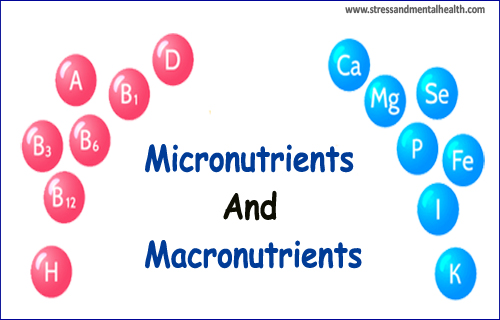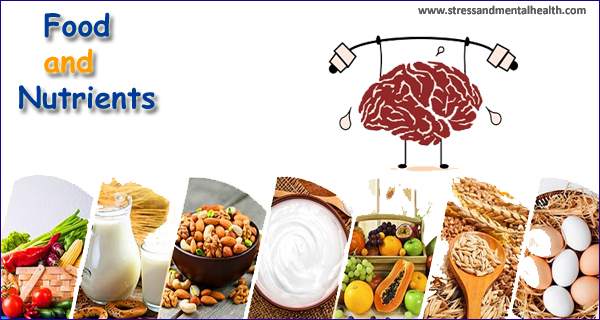Introduction
“Food and Nutrients plays important role in human life. Nutrients provide us energy, building blocks for repair and growth, and essential matters to regulate the chemical process in our body. Good and balanced nutrients and physical activities help us to remain active, energetic and reduce the risk of diseases, including heart diseases, diabetes, some cancer, stroke, and osteoporosis, etc. So we may intake nutritious food.”
What Is The Food and Nutrients
Food And Nutrients are compounds in foods, the building blocks for repair and growth of the body, and other substances which are necessary to regulate chemical processes in our body. Our body needs seven major nutrients as details below:
- carbohydrates.
- fats.
- proteins.
- vitamins.
- minerals,
- water and
- Roughage.
- These nutrients are very necessary and perform a vital function in our body. Carbohydrates give us energy, fats give us power, protein does body growth and repair of various cells, Vitamins and minerals are required for day to day working of various parts of our body.
Nutrients: Our body receives nutrients from the food that drive biological activity and are essential for the human body and perform the below mentioned vital function of our body;
- Produce energy (Power and heat)
- Building all parts of the body such as muscles, bones, teeth, and blood.
- Keeping the body in good working condition.
- Fats and carbohydrates(Sugar) give us energy power and heat.
- Proteins; build blocks of the body and cells
- Vitamins and minerals; keep our body in good working condition/order.
- Water; makes our body hydrates, transport nutrients throughout the body, excrete waste from the body and maintain body temperature
- Roughage; essential for the movement of alimentary tract organs.
These essential Food And nutrients are divided into two categories

1) Micronutrients
These nutrients are needs in small quantities. Micronutrients consist of vitamins and minerals. Our body needs a small amount of them but deficiency thereof causes ill health. Vitamins and minerals do not give any energy but play an important and vital role in keeping out our body healthy and in good working order. Vitamin is the general term for the organic compound and is necessary for our body. Lack of vitamins leads to various deficiency-related diseases.
Vitamins are of two types, water-soluble and fat-soluble. Vitamin A, D, E, K are fat-soluble but are required daily in small quantities. Vitamin B 1, B-2, B-3, B-5, B-6, B-7, B-9, and B-12, and Vitamin c are water-soluble vitamins that dissolve in water easily. These vitamins are required in small quantities.
Vitamins are available in large amounts in fruits and vegetables. Vitamin boosts our immune system, strengthening teeth and bones, helps in calcium absorption, keeps up healthy skin, supporting healthy blood, improves and maintains nervous system function.
Minerals are also inorganic matter and are chemical elements that make up our human body excluding oxygen, carbon, hydrogen, and nitrogen. There are different minerals such as, magnesium, calcium, phosphorus, sulfur, sodium, potassium, and chloride which are necessary for the human body.
Trace minerals also play an important and vital role in our body’s daily function. These include iron, selenium, zinc, chromium, manganese, copper, iodine, fluoride, molybdenum. These minerals help to strengthen bones, maintain our teeth, aiding in blood clotting, help to carry oxygen, boost the immune system and maintain blood pressure. Minerals are found in fruits, vegetables, seaweed, and milk/dairy products.
Minerals help the body to do these acts properly:
- Balance water levels.
- Maintain healthy hair, nails, and skin.
- Maintain and improve bone.
2) Macronutrients:
These nutrients are required in large amounts, which include carbohydrates, fats, protein, water, and fiber.
Food and Nutrients Carbohydrates
Carbohydrate is a nutrient that gives us quick energy. Sugar and starch are carbohydrates. Sugar provides us instant energy. Starch release more energy slowly than sugar. Plants provide us carbohydrates. Rice, wheat, potato, banana, bread, and sugar, etc. are its good source. If we consume more carbohydrates than required, then the remaining carbohydrate is stored in the human body in the shape of Fat.
Food and Nutrients Protein
protein is required in large quantity, for the growth and development of muscles, bones, hair, skin, and cell of our body. It forms antibodies, hormones, other essential substances, serves as a fuel source for cells and tissues when required for the rebuilding and maintenance of cells. There are billions of cells in our body that remain busy continuously for the making and development of new cells.
Proteins are also required to replace old cells and spoiled cells. Thus we should include enough protein items in our daily food. More protein is required for the development of a growing child. Approximately 50 to 60-gram protein is required daily per person and growing children need more protein daily.
We get Proteins from both plants and animals. Pulses and soya beans are obtained from plants. Meat, fish, eggs are animal proteins.
Fats
They provide energy and helps to carry out different functions. There are many kinds of fats. Our body uses fats as an energy store. Our body stores fats under the skin, around the kidneys, and heart. Different oils such as groundnut oil, sunflower oil, coconut oil, mustard oil, nuts, almond are plant fats. The daily requirement of fats for a person is approximately 70 to 80 grams.
Water
Water is also very essential for the development of the human body. 70 % of our body weight is water. Most of this is present in our body cells, some water lies between these cells. The liquid part of our blood also contains water.
Water plays a vast role in the human body system, it absorbs nutrients from food, transports nutrients throughout the human body. Collect waste from different parts of the body and excrete the same in the shape of urine and sweat. Our body gets cooled by the evaporation of sweat from the skin. Also, we lost water during day-to-day work like breathe in, evacuation. Mostly we need approximately 10 to 12 glasses of water daily for the smo0th functioning of our body.
Roughage
Plant foods such as fruit, vegetable contain carbohydrate which can not be digested by our body and excreted through our alimentary tract system in the shape of feces. Roughage adds bulk to our food. As it is not digested, it passes down the entire digestive system from the mouth to the anus. It helps the muscles of the digestive system to move smoothly and ensure proper bowel movement.
FAQ
Q.Why are nutrients important for the body?
Ans. There are 6 nutrients and one fluid that our body needs to function properly. Nutrients are compounds in foods that are essential for life and health, provide energy, repair, and growth of various cells in our body, and provide necessary substances to regulate the chemical process in the human body.
Q.What are the most important nutrients in our body?
Ans. The most important nutrients in our body are Water.
Q.What are the names of all the nutrients?
Ans. The nutrients are Carbohydrates, Fats, Proteins, Vitamins, Minerals, Fibers, and fluid taken in the shape of water, milk, tea, etc.
Q.What is the main function of nutrients?
Ans. Nutrients provide us energy, contribute to body structure repair and maintain various cells of our body, regulate the chemical process in our body.
